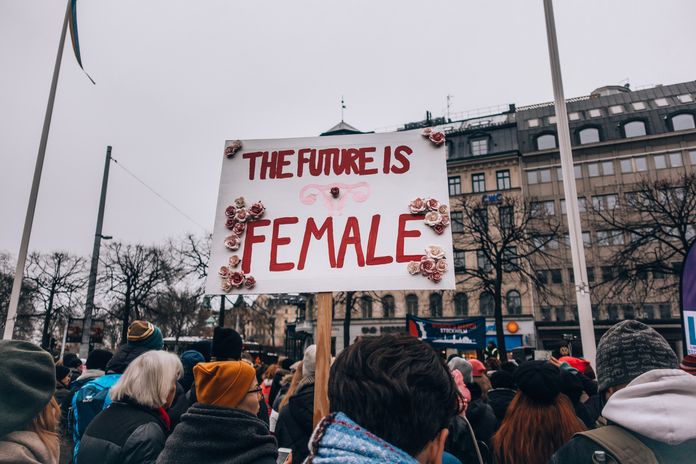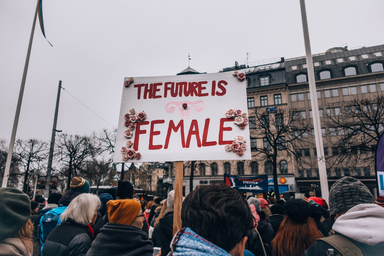The coronavirus pandemic has forced events to be erased from calendars- wedding gowns have been tucked in closets until 2021, plane tickets have been refunded, families have been disappointed and forced to wait. Despite the postponement of many life celebrations, All Maine Women and the University of Maine fought to put on Take Back the Night, an annual event that allows those who have been victims of sexual assault and domestic violence to share their stories in a confidential, safe, and supportive environment.
Miranda Snyder, President of All Maine Women, stressed the importance of putting on this event in the face of a year defined by political, economic, and social challenges, each disproportionately affecting women. Snyder said, “When trying to plan the event, I struggled with balancing the importance of the event occurring with keeping everyone in attendance safe.” All Maine Women adapted to the challenges faced by COVID-19 regulations and held the event in the lawn behind Fogler Library. Chairs were socially distanced, and masks were required. “Obviously, it was disappointing that immunocompromised folks could not attend, but the sensitive nature of this event required for it to be held in person.”
Despite obvious setbacks from the pandemic, various speakers took the stage at the event. Dean of Students, Robert Dana, opened the event with words that are a testament to the current climate: “We’ve got to resist the darkness. Find your voice, have it, say it, speak it.” Anila Karunakar, Director for Diversity and Inclusion, echoed this tone through a short written piece she prepared for the audience: “They thought we would be silent, but look at us scream and rage on.”
While some used their platform to encourage and empower, Dawn Neptune Adams used hers to educate. Adams honored the Native American land in which the University of Maine sits on, and spoke out about the murders and disappearances of Native American women and girls. Adams said, “It’s an invisible problem, and unless it’s impacted you personally, you don’t see it. I’m often asked what we can do about this, and I struggle with that. How do we fix a problem that is so huge and has so many facets?” Following Adams’ presentation, the University of Maine’s premier all-female acapella group, UMaine Renaissance, gave a harrowingly beautiful performance that reflected the energy in the space.
In addition to speakers from the Bangor area, representatives from several local organizations joined in for the event. Partners for Peace, Rape Response Services, and the UMaine Feminist Collective were all on-site. They provided resources and gave information about their missions.
The end of the event was arguably the most emotional. The survivor speakout, candle-lit march, and moment of silence allowed survivors to feel supported and seen. Snyder celebrated this aspect of the event. “It is unacceptable to not hold events and undertake initiatives that do not honor survivors’ experiences in today’s current climate.” She continued, “I have felt an immense sense of support, pride, and freedom participating in and leading Take Back the Night. I’m grateful that this event was able to occur despite COVID-19. Thankfully, this occurrence set a precedent of this event taking place no matter the circumstances.” The event managed to bring attendees of all ages, genders, races, and backgrounds together and feel comforted, despite having to stay six feet apart.


